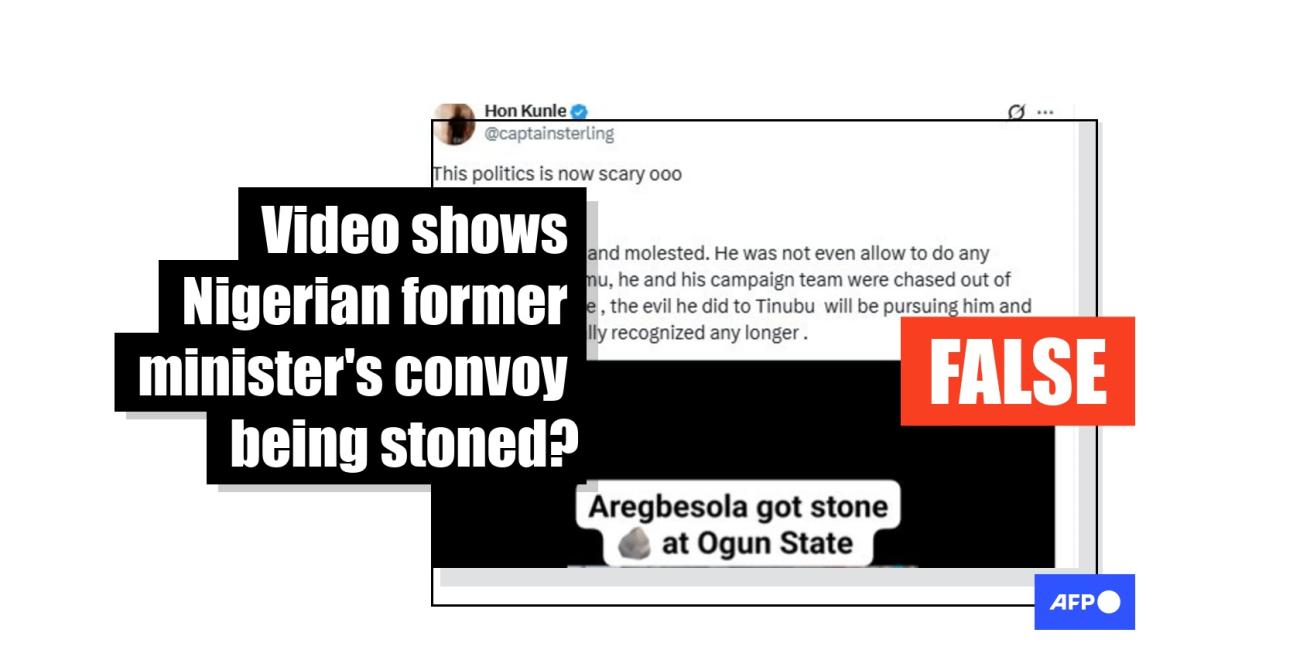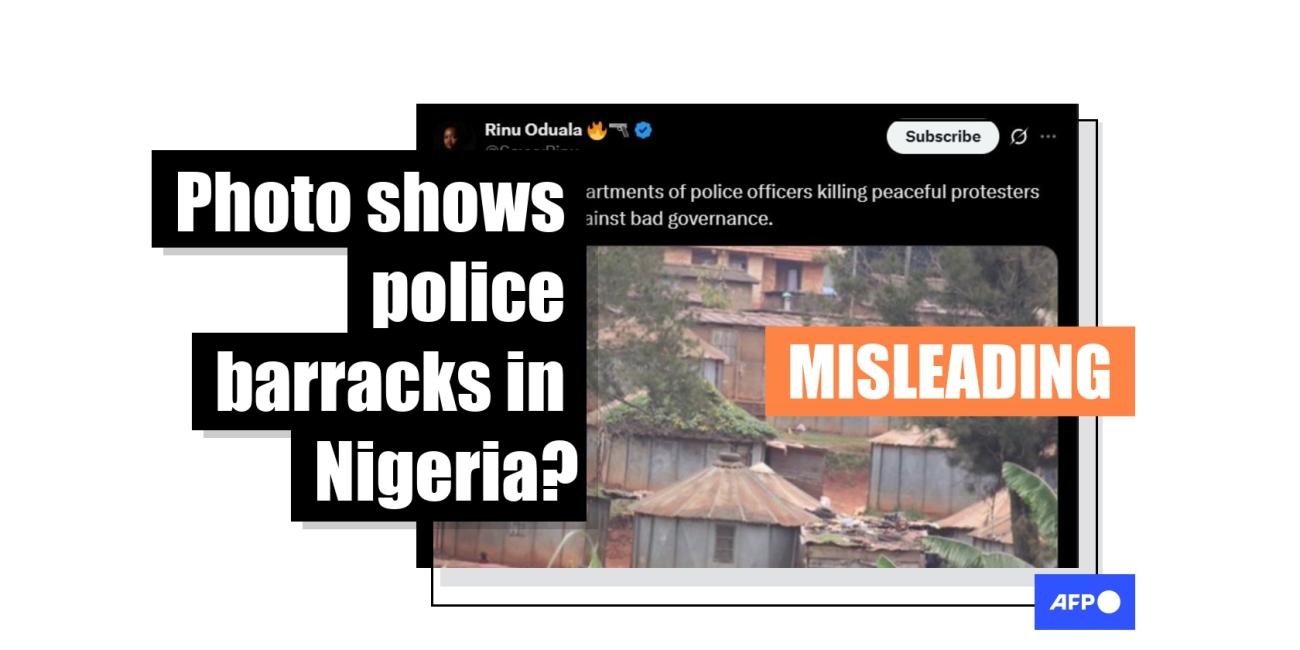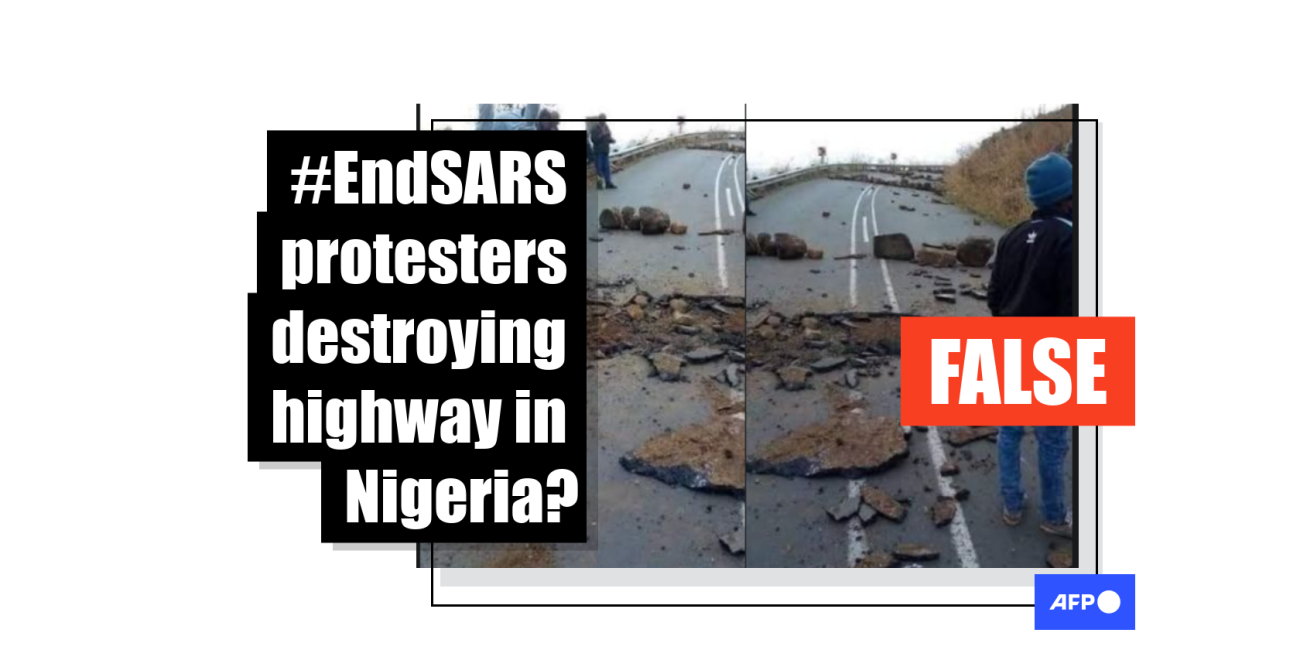
Clip shows Nigerian air force members beating curfew violators, not separatists
- This article is more than three years old.
- Published on December 9, 2022 at 19:34
- 3 min read
- By Tonye BAKARE, AFP Nigeria
“THIS ARE WHAT BIAFRANS ARE PASSING THROUGH IN THE HANDS OF NIGERIA ARMY (sic),” reads a tweet shared with a video on December 6, 2022.
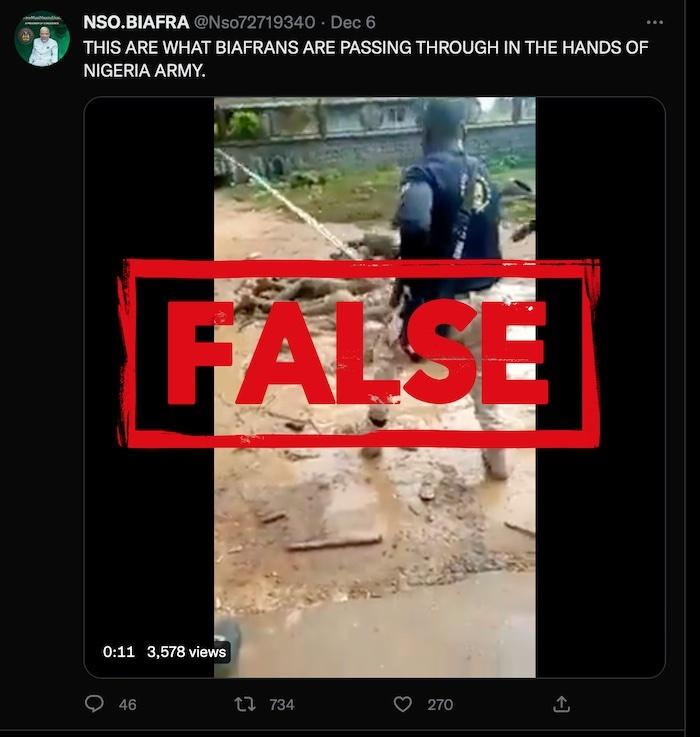
The clip shows armed men dressed in combat trousers and black T-shirts beating a group with sticks in a muddy puddle. One of the victims on the ground cries out while another voice, likely one of his assailants, orders him to keep quiet.
The post has been retweeted more than 700 times and was shared by an account sympathetic to the secessionist campaign of the outlawed Indigenous People of Biafra (IPOB).
The group’s militant wing, Eastern Security Network, has been blamed by authorities for fatal attacks on civilians and security officials in the five-state southeast region, referred to as Biafra by separatists.
The group and its members regularly use disinformation to drive its campaigns.
In 2021, Amnesty International accused Nigerian security forces of using “ruthless excessive force” against the separatists, leading to the deaths of at least 115 people within a four-month period.
Amnesty said the government troops “committed a catalogue of human rights violations and crimes under international law in their response to spiralling violence in southeast Nigeria” home to the ethnic Igbo population.
But the claim that the video shows Nigerian army officials beating “Biafrans” is misleading.
Video from Osun
Using the InVID-WeVerify video verification tool, AFP Fact Check traced the clip to several media reports and social media posts published in October 2020.
One article by the Nigerian newspaper The Punch reported that the video showed officials of the Nigerian Air Force “brutalising” curfew violators in Ilesa, a town in Osun state. The newspaper also published the video on its Facebook page.
Osun, in southwest Nigeria, is dominated by Yorubas. While separatists there are also pushing for the independence of the region such as the Yoruba Self-Determination Movement, their activities are markedly different from those of IPOB and its affiliates.
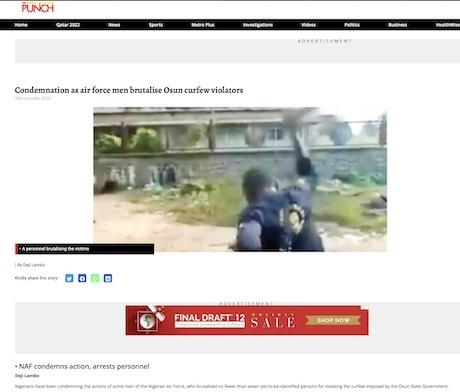
When the video was recorded, the government had just declared a 24-hour curfew after protests against police brutality turned violent and chaotic in major cities in the state. The protests saw thousands of young Nigerians rallying against extortion, indiscriminate arrests, torture and extrajudicial killings carried out by the now-defunct special anti-robbery squad (SARS) of the Nigerian police.
On October 28, 2020, the Nigerian Air Force acknowledged that its officials were the ones seen in the video carrying out the beatings. It claimed, however, that the people being assaulted were “suspected hoodlums involved in criminal activities during the imposed curfew in Ilesha”.
(1/4) Alleged Flogging of Curfew Defaulters in Ilesha, Osun State
— Nigerian Air Force (@NigAirForce) October 28, 2020
The attention of @NigAirForce has been drawn to a video showing some personnel flogging/meting out corporal punishment on suspected hoodlums involved in criminal activities during the imposed curfew in Ilesha. pic.twitter.com/2whlyIEcRb
The individuals involved in the brutality were arrested although their names were not released. Reports of their arrest were published in local media.
Corporal punishment
Cases of security forces meting out corporal punishment to civilians are rife in Nigeria.
In November 2020, soldiers deployed to quell #EndSARS protests in Ibadan, the capital city of Oyo state in southwest Nigeria, flogged a woman for “indecent dressing”. A man was beaten by soldiers in another part of the city in January 2022.
A senior lecturer at a polytechnic in Lagos was assaulted for “speaking up for his students” in October 2021.
Copyright © AFP 2017-2026. Any commercial use of this content requires a subscription. Click here to find out more.
Is there content that you would like AFP to fact-check? Get in touch.
Contact us
